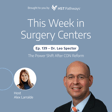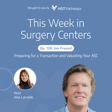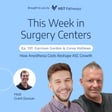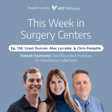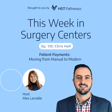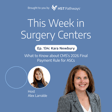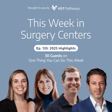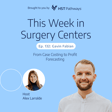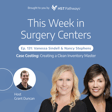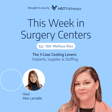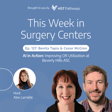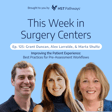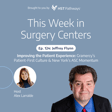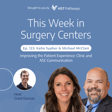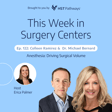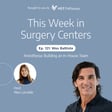
Bill Hazen - How Marketing Your ASC Improves Revenue
Are you ready to start marketing your ASC?! Our host Nick Latz sits down with Bill Hazen, the Admin/CEO at Surgery Center at Pelham, who uses different marketing tactics to drive revenue and their Total Joints program. From billboards to radio ads to local sponsorships - Bill gives our listeners a look into how he's using consumer-driven healthcare to improve their bottom line.
In our news recap, we'll cover new tech that has entered the ASC industry for the first time, the importance of hosting an open house, and some industry stats on specialties, ORs, and more.
Articles Mentioned:
Discharge 1-2-3 Expands Into Surgical Centers to Enhance Pre- and Post-Operative Care
Q2 2022 Industry Overview by ASC Data
Mom runs hair salon inside hospital to pamper parents of NICU babies
Brought to you by HST Pathways.
